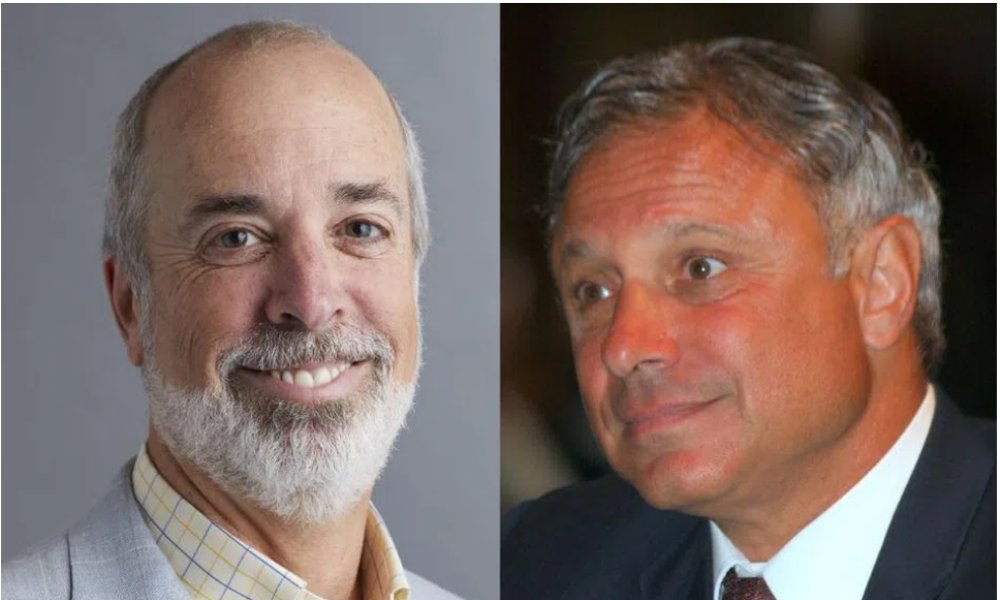9 out of 10 advisors are interested in buying crypto, survey shows, but those who spoke to InvestmentNews offer wildly different opinions

It’s the eighth day of 2024 and there’s already a surprising turn of events: 88% of financial advisors are interested in buying bitcoin.
That’s according to a recent survey from Bitwise and VettiFi that also found that 98% of advisors surveyed aim to increase clients’ crypto exposure and that 88% report client interest in crypto.
This comes as the SEC is expected to make a decision on approving bitcoin exchange-trading funds. If approved, this could launch the controversial type of ETFs, allowing more advisors to experiment with the cryptocurrency and allocate it into portfolios.
Advisors seem to have mixed views on the topic, with some saying they don’t plan to buy bitcoin ETFs and others who are open to using bitcoin ETFs in client portfolios.
Ric Edelman, co-founder of Edelman Financial Engines and an advocate for digital assets, said advisors have been frustrated by the lack of a spot bitcoin ETF, which has forced them to sit on the sidelines.
“We expect that when the ETF becomes available, a far higher number of consumers will engage because ETFs are familiar to everybody,” Edelman says. “It’s the most popular investment vehicle in America. It is superior to virtually every investment platform. It’s very inexpensive, it’s the lowest-cost investment vehicle there is.”
Edelman said that another reason advisors are keen to engage with bitcoin ETFs is cost efficiency.
“It’s highly affordable, you can establish an ETF account with as little as $5. It’s highly liquid, it’s easy to buy and sell throughout the trading day. And it’s very tax efficient,” he said.
Bitcoin doesn’t come with only praises, however. As Edelman added, it’s also complicated to understand, which is one of the main reasons why advisors tend to shy away from using it.
“If you want to open an account with a crypto exchange, it’s cumbersome, it’s complex, you’ve never done it before, these companies tend to be relatively new. And they therefore don’t have the household name recognition that allows ordinary investors to feel comfortable,” he said.
David Mendels, principal at DPM Planning, is a bit more skeptical about bitcoin and its usefulness.
“It doesn’t belong in a portfolio because it’s not really an investment; it’s just pure speculation on the greater fool theory,” Mendels says. “Am I open to it being regulated? Absolutely. If a client wants to play with, speculate on it, that’s fine. But it’s not an investment vehicle.”
Kashif Ahmed, founder and president at American Private Wealth, is thinking along the same lines as Mendels.
“Bitcoin really came into the general conversation because it only went up for a period of time, and then what happened? It effectively went to zero,” Ahmed said. “Just because it goes up again doesn’t mean all is well, and we should forget the past.”
When it comes to clients’ interest in bitcoin ETFs, Andrew Herzog, certified financial planner at The Watchman Group, said it really comes down to their age.
“Those that are older are just less tech-savvy most of the time. So they find it harder to try to grasp that concept,” Herzog said. “Those that are just more tech-savvy and more OK with the concept of digital money and things of that nature understand the usefulness of crypto and how it’s very secure. It’s coding. You don’t just change the rules that easily, it’s code.”
Herzog says he personally plans to increase his allocation if a spot bitcoin ETF is approved this week and would do it in the form of a tax-deferred account so he can take any expected appreciation and avoid taxes on it.
Edelman predicted that over the next several years, there will be a huge flow of assets into bitcoin and other digital assets. “Just independent RIAs alone will place $150 billion into these ETFs over the next couple of years.”
For those who are still considering whether to invest in crypto, Edelman created the certified in bitcoin and digital assets designation, or CBDA, offered by the Digital Assets Council for Financial Professionals to help advisors get the education they need so that they can effectively counsel their clients.
Not educating themselves, Edelman says, is causing advisors to reach an incorrect conclusion. “The result is that their clients are missing out on what is the greatest wealth-building opportunity of the decade.”



